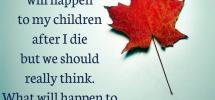Motivation is presently lacking among Muslims. Otherwise they would not have given in to sleep even if they had to stay awake in the first part of the night. When one of them is required by his work arrangements or for his own worldly benefit to wake early at dawn, he would no doubt take the necessary precaution not to miss his appointment. He will forsake his peace of mind and have a restless sleep just for fear he might be punished or have his salary reduced. When it comes to prayer, they have no excuse especially when in our modern times Allah has provided us with alarm clocks which would be set at any time we wish. Thus, one of the ill-seeming phenomena and most serious precedents boding impending danger and punishment, giving reason to fear and calling for most urgent consideration on our part requiring immediate investigation into its causes and treatment of its symptoms is the fact that a growing number of observers of prayer deliberately shun Fajr prayer in congregation and only perform it at times other than its lawful time. THE FOLLOWING MAY BE USEFUL TIPS THAT HELP US WAKE UP FOR FAJR PRAYER ONE: To make sure to go to bed early as the Prophet (SWS)used to discourage sleep before performing Ishaa prayer and especially engaging in conversation after it. TWO: To be assiduous in observing the Aadaab [good manners prescribed in Islam] as to what to do before sleep such as making Du'aa [supplication], bringing one's palms together, very mildly spitting into them and reciting the last three soorah's of the Qur'aan into them and them wiping them over one's face, head and body, being physically and religiously pure and performing a two rakah voluntary prayer after wudhoo [ablution]. A muslim has to ask his wife, parents, relatives or neighbours to help waking him up. Once waken up, he should not linger lazily for long in bed, lest he acquires the vices of the hypocrites who come to prayer showing ample signs of lazines and lack of enthusiasm. THREE: To fill one's heart with faith and good deeds. The heart is highly sensitive to external hardening stimuli, such as excess food or drink or aberrations in watching or listening (letting your eyes and ears loose to what is unlawful for them). You should therefore protect your heart from such external allurements. FOUR: To keep away from Ma'aasi [acts of disobedience to Allah] by protecting the eyes, the tongue, the hearing and all the senses from indulging in the perception of objects that Allah has made unlawful for us. One member of the rightly guided early generations was asked about the reason why people found it difficult to uphold voluntary prayers at night. He answered: "Your sins have shackled you". No doubt sins can be a major cause for a persons inability to enjoy the blessings of piety. FIVE: To bear in mind the great reward for attending Fajr prayer in congregation on time. Uthmaan ibn 'Affaan related: I heard Allah's Messenger (sallallaahu-alaihi-wasallam) say: "He who prays Ishaa in Jamaa'ah [congregation] is as if he has prayed for half the night . As to him who (also) prays Fajr in congregation, it is as if he has prayed all night." [narrated by Maalik and the wording is that of Muslim who also reported it] Similarly, Bukhaaaree and Muslim and An-Nasaaee related on the authority of Ibn Mas'ud (radiallaahu-anhu) that he said: The case of a man who slept all the night up to sunrise (without waking up for Fajr) was related to the Prophet (SWS) whereupon he said: "That was a man in whose ear Shaytaan has urinated", or he said "in both his ears". SIX: To realize the bad effects resulting from one's failure to pray Fajr, such as the melancholic and depressive state of mind and the loss of many religious and worldly benefits, and the good effects resulting from managing to perform it. In this respect the Prophet (SWS) said: "Shaytaan ties three knots on the crown of any one of you in your sleep. He says upon each knot that he ties: "You have a long night before you, therefore sleep". But if you wake up and mention Allah, Most Exalted in remembrance one knot will be untied. If you then make ablution another knot will be undone. If you then proceed to pray the last knot will be disentangled. Thus, you will feel in the morning energetic and in good spirits. Otherwise you will feel in a despicable state, lazy". [narrated by Maalik, Bukhaaree, Muslim and Abu Dawood] The time following Fajr prayer is full of goodness and blessings. At-Tirmidhee narrated upon the authority of Al Ghamdi that the Prophet (SWS) said: "O Allah bless my Ummah in its early rising!" There are many benefits to the health derived from waking up for Fajr prayer. For instance, the highest proportion of ozone gas (O3) in the atmosphere is registered at dawn. It then gradually fades away until comlplete disappearance by sunrise. This gas has a very beneficial effect on the nervous system as it vivifies the brain and energises the muscles such that when a person inhales the beautiful breeze of the dawn, known as the SABAA wind, he will experience a pleasure that is unparalleled at any other time of the day or night. SEVEN: To lose no time to categorically clear yourself from the stigma of hypocrisy. Because of the difficulty of waking for this time, praying Fajr in congregation provides evidence that a person has firm faith and is free from hypocrisy. That is why in a hadeeth narrated by Bukhaaree and Muslim, the Prophet (SWS) said: "Indeed, the most difficult of prayers to bear, for the hypocrites, are Ishaa [night] and Fajr prayers. If only they knew what they are missing , they would sooner come, even if crawling on their knees". The most worthy companion, Abdullaah and Ibn Mas'ood (radiallaahu-anhu) asserts "The only one indeed who misses them [i.e. Ishaa and Fajr prayers] is a confirmed hypocrite" (5). Ibn Umar (radiallaahu-anhu) said "When we find a man missing from the Ishaa and Fajr prayers we nurture suspicions about him." Written by an anonymous student of Islamic knowlege with an introduction by Sheik Abdullah Ibn Jibreen
2014-05-11 00:35:06
Motivation is
sign in to comment
Be the first to comment





